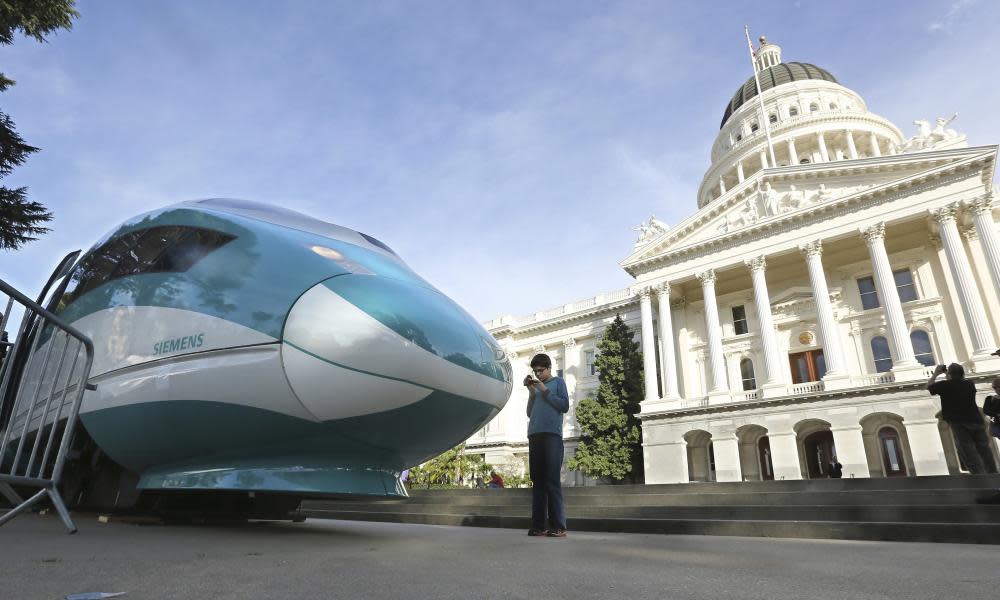Trump v California: administration wants to get billions in rail funding back

One week after Donald Trump called California’s high-speed rail project a “‘green’ disaster”, the US Department of Transportation announced plans to cancel $929m in federal grant funds that were yet to be paid toward the $77bn endeavor.
The department also “is actively exploring every legal option to seek the return from California of $2.5bn in federal funds FRA (Federal Railroad Administration) previously granted,” according to the statement released Tuesday.
The moves come a week after California Governor Gavin Newsom said during his state of the state address, that the high-speed railway project as currently planned, would cost too much and take too long”. Opponents of the ambitious project interpreted his comments as a declaration that “the train to nowhere has finally stopped” and that Newsom was canceling the leg of the plan that extended the railway from San Francisco to Los Angeles. But Newsom’s office later clarified that he meant only that “we have to be realistic about the project”.
In response to Newsom’s remarks, Trump sent out a tweet asking for the return of “three and a half billion dollars”. Newsom responded by tweeting that the money was “allocated by Congress for this project. We’re not giving it back”.
“The train is leaving the station – better get on board!” the governor wrote.
Federal Railroad Administrator Ronald Batory argued on Tuesday that Newsom had “presented a new proposal that represents a significant retreat from the state’s initial vision and commitment and frustrates the purpose for which federal funding was awarded”.
The Federal Railroad Administration determined that the California High-Speed Rail Authority, the state-run organization tasked with overseeing the project “has materially failed to comply with the terms” of the agreement that promised $929m in federal funds for construction, Batory wrote in a letter to Brian Kelly, the authority’s chief executive.
The authority “has failed to make reasonable progress”, Batory wrote, and will not complete the project by the end of 2022, as was previously agreed upon, Batory added.
The federal government’s moves are the latest point of friction between the Trump administration and California’s state government. The transportation department’s announcement came one day after California led a coalition of 16 states to sue the Trump administration over the president’s decision to declare a national emergency for border wall funding.
On Tuesday, Trump tweeted, “The failed Fast Train project in California, where the cost overruns are becoming world record setting, is hundreds of times more expensive than the desperately needed Wall!”
“It’s no coincidence that the administration’s threat comes 24 hours after California led 16 states in challenging the president’s farcical ‘national emergency,’” Newsom said in a statement. “The President even tied the two issues together in a tweet this morning. This is clear political retribution by president Trump, and we won’t sit idly by. This is California’s money, and we are going to fight for it.”
The high-speed rail project has been a multi-decade effort to connect eight of California’s largest cities by what was conceived as America’s first bullet train. In 2008, voters approved almost $10bn in funding for a plan to to lay down hundreds of miles of new track, but years of protest and lawsuits have forced the authority to rework its plans.
Phase one, a 520-mile long endeavor connecting downtown San Francisco, Los Angeles, and Anaheim with cities in the Central Valley, was expected to be completed in 2029, but that has since been pushed to 2033.

 Yahoo News
Yahoo News 
